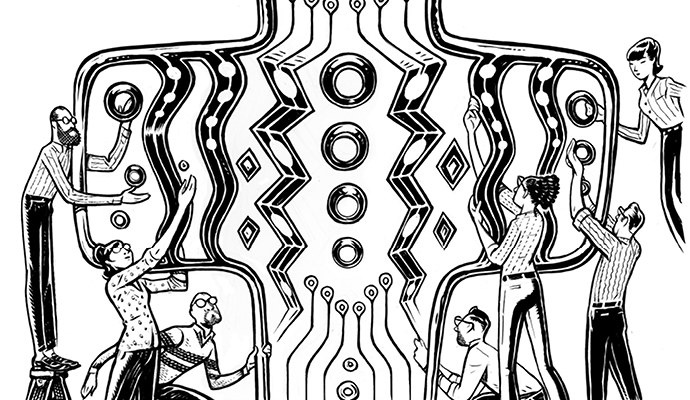The Role of Corporate Culture in Product Development
A company’s culture can have an effect on the quantity and quality of the new products it develops.
Title:
How Many and What Kind? The Role of Strategic Orientation in New Product Ideation
Authors:
Jelena Spanjol (University of Illinois at Chicago), William J. Qualls (University of Illinois at Urbana-Champaign), and José Antonio Rosa (University of Illinois at Urbana-Champaign)
Publisher:
Journal of Product Innovation Management
Date Published:
Forthcoming
Does a company’s culture affect the quality and quantity of new product ideas that it generates? For example, if a company is focused on meeting customer needs, does that mean it will be less capable of churning out game-changing products? To understand the role that corporate culture plays in new product development, the authors surveyed 182 managers from companies in the consumer packaged goods industry. They found that companies introducing a steady stream of incrementally improved products typically have a different strategic focus than companies such as Apple that are known for developing novel products.
The authors identified three corporate strategies employed by the firms surveyed; they were either customer-centric, competitor focused, or technology driven. The companies that focused on customers or competitors came up with more new product proposals than technology-driven firms, but their ideas typically represented subtle shifts in design and features because they were reacting to market changes or consumer demand. This idea is confirmed by another study cited in the paper, in which nearly a quarter of the 914 senior executives surveyed admitted to responding to a competitor’s significant innovation by releasing an “imitation” product rather than a truly novel one. Likewise, by constantly incorporating consumer feedback into the product development process, customer-centric companies often adopt a “middle-of-the-road” stance that results in very minor changes to existing products. A pure consumer focus is the least promising road to novel product ideation, the authors found, although it can have a positive impact in other areas of brand performance — such as customer loyalty and product recognition. During the initial stages of product development, companies with the most innovative products rarely focused on consumer feedback or on what their competitors were doing. Instead, they aimed to master the latest technologies or develop their own to create cutting-edge products.
The paper concludes that a company’s culture determines how it approaches new product development. To encourage fresh innovations, firms must dedicate resources to the exploration of new technologies. However, if the goal is to reduce risk and make incremental improvements to existing products, a competitor-focused or consumer-centric approach is best.
Bottom Line:
Creating truly innovative products requires companies to focus on technology more than any other objective at the idea-development stage.


